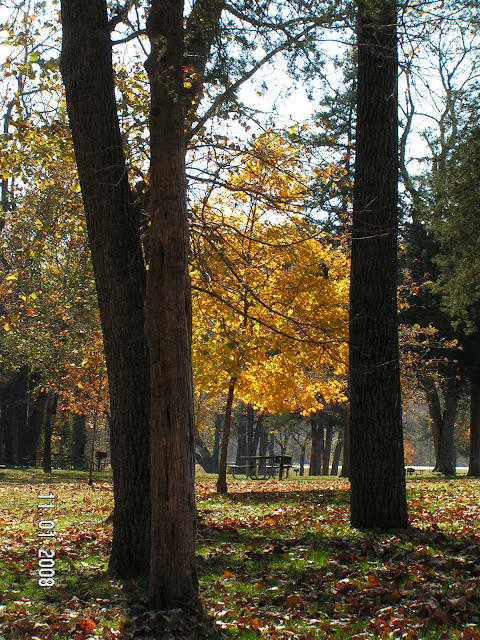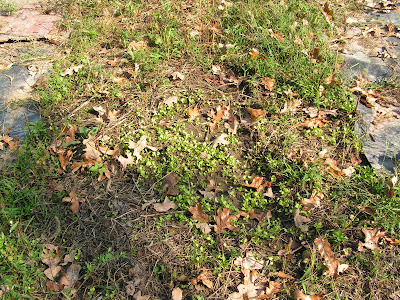The fire crackled merrily in the huge fireplace. The radio was softly playing a plaintive tune. Curled up on the davenport watching the shadows, was Anne Hatherly.
Tearfully she thought of leaving home. Mother and Dad were so wonderful, and then there were Bobby and Betty, the younger children. She knew she would miss them too. Why couldn’t they all go—but then life just isn’t that way.
She had worked hard all summer, with college as her goal. But now that she was ready to leave, her thoughts of home were uppermost.
The clock struck eight, breaking into her reveries, and then her father’s big voice boomed out, “I took your trunk down and checked it. Your train leaves at eleven-fifteen in the morning. I’m glad you are going to college dear, and remember, Anne,”—he sat down beside the girl, placing a strong arm about her--“I love you; you know that. I have faith in you. With your talents fully consecrated to the Lord, you will make good. Just a s surely as there is a place for us in heaven, there is a work for us to do here in this world. I know God has a special place for you, Anne. Be true and honest and faithful. Mother and Dad will be praying for you.”
Anne’s eyes filled, and Father just hugged her tighter while a few tears dropped on his shoulder. They both were silent for a moment or two, then he said, “Let me tell you a story from real life, daughter. Perhaps it will help you some day.”
“When I was a boy we lived on a farm in the Willamette Valley. The house was of the low, old-fashioned type. Over one side and around the porch climbed a white rambler rose. In the yard were huge spreading cherry trees. Oh how we boys loved to climb them and eat all we could hold of their delicious fruit.”
“To the north was an orchard. Back of that was a plum thicket; between this and the orchard was the red barn, where we boys played in the hay. Directly in front of the house was a large field of waving green grass, skirted by clumps of sentinel-like trees. An old worn fence zigzagged leisurely between our farm and Mr. Elm’s. To the south ran a railroad track, and beyond it the Tualatin River. Below the trestle which crossed this river was an old fashioned flour mill. We boys often trudged down there with wheat to be ground, giving the miller one fourth for grinding.”
“It was during these happy, barefoot days that I learned to love the Lord. Every evening, after the chores were done and supper was over, we had worship. Mother was growing a bit deaf; so she read the Bible as we children and Father sat about the fireplace. Never can time erase from my memory those earnest seasons of prayer. Ours was a peaceful, happy household.”
“But hard times came. Father slipped in the Christian way; we lost our home and became very poor. Mother, however, stood true and loyal, enduring Father’s abuse and breaks of temper like a real soldier of the cross.”
“We boys grew up and left home one by one. The world was alluring, but, Anne, God always helped me to remember that my Mother was praying for me, Trusting in me, and I could not break that trust.”
“My wish is that you, too, may have that same anchor, that same sweet assurance, knowing that we here at home are praying for you, as you go out alone into the strange, wide world.”
Anne’s heart was too full for expression. She just squeezed her father’s hand tightly, then slipped up to her room and into bed, “for the last time till next summer,” she sighed.
……………………………………………………
“But Anne, it’s such a little while—surely it can’t be wrong! Just think what it means to your future. Won’t you please?” begged Judith, who had been Anne’s roommate for nearly two years.
Anne was a beautiful singer, and with her congenial, happy disposition, had won many friends; in fact, she was almost to the point of too much popularity. However, she had calmly kept her head, standing like a monument for right.
But now what should she do? In a near-by city a radio broadcasting station was seeking singers. At first she only filled in, in the absence of a friend. Now she was offered a position at a substantial salary. It would mean that she could go to school easily—no more days spent under the boiling sun picking berries—no more wearing of old made-over clothes. And Anne loved clothes just as any girl loves them. Her hands wouldn’t be rough any more; they would be soft and white like Judith’s. Could she? Should she? Would she? It was only one hour, one afternoon hour, of singing on Sabbath.
“Why, oh, why,” she wailed as she hid her face in a fluffy white pillow, “does the voice of conscience have to keep whispering that it is wrong?”
What real difference did it make anyway? She had been too narrow-minded. This wouldn’t be like really working on the Sabbath. Her singing might even cheer some poor shut-in, and that would be missionary work. Yes, she would—just long enough to get through school!
Judith danced a gleeful jig of her own making when she heard Anne’s decision. She loved her friend dearly and unselfishly, but not being a Christian, she little knew of the struggle going on in Anne’s heart.
And so the winter weeks came and went, but Anne was always sad. “Why must I be so unhappy?” she asked herself many times. “I have more than I have ever had before!” But still the ache was there.
At last came a spring afternoon when Anne sat with her face hidden in her hands, large tears dropping through her fingers and blurring the words of an open letter on her lap.
Before her, as a panorama, flashed a view of home. It was worship hour. She heard prayer, her father’s voice, then heard him say, “I have faith in you, dear.”
Slowly she sank to her knees, for the first time in months. Contritely she begged God to forgive her, to give her new strength to do right.
It was the spring Week of Prayer. The speaker of the evening had just made a call. Many hearts were responding, but among those sitting still was Judith, almost persuaded, but not quite. The speaker stood silently praying; the audience was tense, as it always is when decisions for eternity are being made.
Then impulsively Anne stepped forward to the platform and began singing. Her sweet, flutelike soprano rang like a dainty, heartbreaking birdsong through the quite room.
“Somebody’s here with an aching heart,
No rest and no peace within;
Somebody’s here and the teardrops start
As God convicts of sin.
“Jesus will give you rest,
Jesus will give you rest,
Turn from your sin,
Call now on Him,
For Jesus will give you rest.
“Somebody’s here whom the Lord doth seek,
My brother, that somebody’s you;
Come as you are, make no delay,
And prove every promise true.”
As the last note died away, Judith rose, and walked resolutely to the front, where stood the group asking for special prayer.
When the two girls were alone in their room, Anne threw her arms about Judith, exclaiming, “Oh, I am so happy!”
“So am I,” sobbed her roommate. “I thought if you could give up so much—“ and her voice again broke.
Anne spoke lovingly, “But Judith, I didn’t give up anything; see—I have gained even you!”
--Maecel Tupper, Youth’s Instructor, November 3, 1931
















